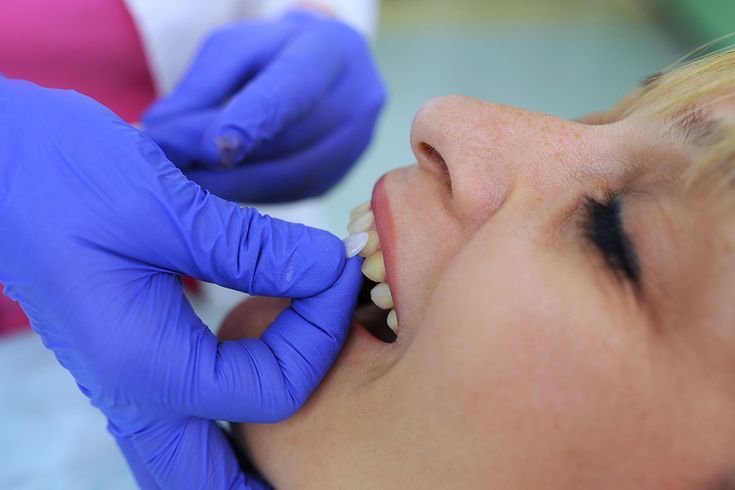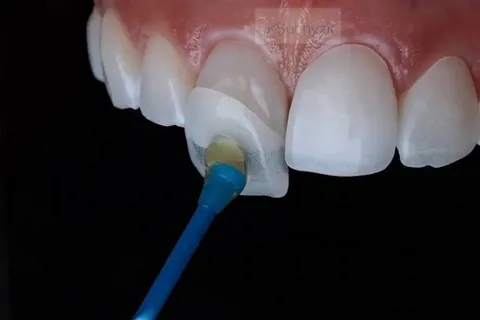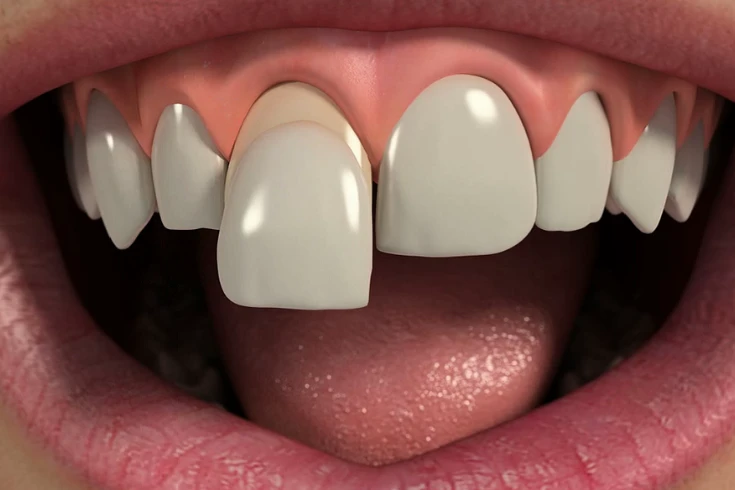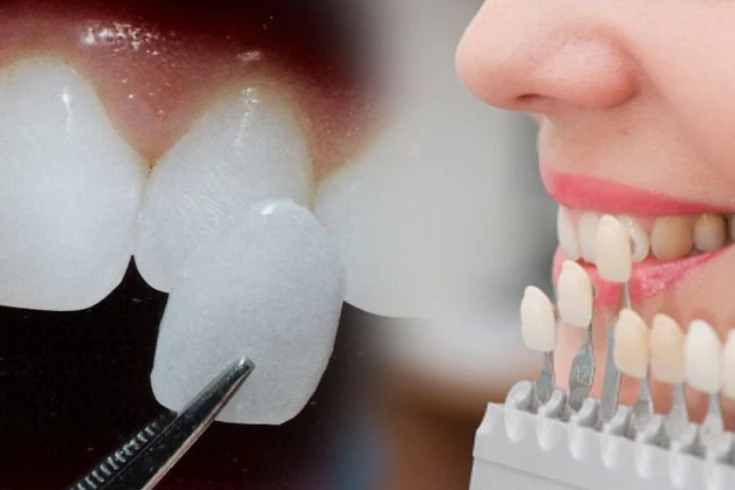Root canal therapy or treatment is a major dental treatment used to save a tooth from serious decay or infection. While most root canal treatments are successful in removing the source of pain, discomforts such as a toothache after a root canal or even a jaw ache after a root canal are common complaints among patients.
In this blog, we will go into exhaustive detail about why aches and pain last longer after the procedure, how to manage such discomfort, and when one should consult with their dentist. By the end of the blog, you shall have a better idea about the healing process and how to deal with any discomfort that might arise on the way.
What is a Root Canal?
It is usually a root canal performed when the pulp, the soft tissue inside the tooth, becomes infected or inflamed because of deep decay, repeated dental procedures, or a crack or chip in the tooth. The treatment involves removing the infected pulp, cleaning the canals inside the tooth, and sealing. Generally, root canals are safe and effective; they avoid further damage to the structure of the tooth.
However, many people do report discomfort, including post-root canal tooth ache or post-root canal jaw ache. These aches may be caused by several factors, as we shall see in detail below.
Causes of Tooth Ache After Root Canal
While a root canal is meant to alleviate or manage pain associated with a painful, infected, or severely damaged tooth, some patients continue to experience aching teeth for some time afterward. Understanding why this happens is important.
Normal Pain after the Procedure
You may experience pain in your tooth after the root canal surgery. It is normal to experience pain or some discomfort even after a root canal as your body heals. This discomfort, or toothache after a root canal, is normally no greater than mild and should not last more than a few days. The tooth has experienced trauma, and it may take a little while for that inflammation to subside.
Inflammation of Tissues Around
A root canal involves extensive cleaning of the canals by the dentist, which can irritate the tissues immediately surrounding the tooth. This irritation commonly causes inflammation that presents as an aching tooth post root canal treatment and must resolve on its own after a few days.
High Bite
Sometimes, as a result of a root canal procedure, a “high bite” may occur where the tooth feels uneven when biting. This could eventually result in a toothache after a root canal. Your dentist will need to adjust the bite in order to eliminate the pain.
Infection
Though this is rare, there is a chance of infection after a root canal. If the infection doesn’t get totally cleared then a chronic tooth ache after root canal may result. Further treatment is required to relieve the condition.
Causes of Jaw Ache After Root Canal
Aside from toothache after the procedure, a number of patients also complain about jaw aches. Knowing the possible causes of it can somehow alleviate this pain.
Prolonged Mouth Opening
A root canal may be a little time-consuming and requires the patients to open their mouths for quite some time. Due to this excessive strain on the muscles of the jaw, several patients experience jaw ache after root canal. The muscles of the jaw may become tired and cause discomfort for a few days after the treatment.
Inflammation of Jaw
Sometimes, due to the process, inflammation of the jawbone or the tissues that surround the tooth may occur. This type of inflammation often leads to an aching jaw following the root canal but later subsides when the inflammation heals.
TMJ Problems
If you have preexisting TMJ issues, the procedure can exacerbate your symptoms and lead to a jaw ache following a root canal. You must inform your dentist if you have TMJ problems so they will take measures to minimize discomfort.
How to Alleviate Tooth Ache After Root Canal
If you have developed a tooth ache after root canal you can follow several helpful ways to minimize the discomfort.
Over-the-Counter Pain Medication
Over-the-counter pain medications such as ibuprofen or acetaminophen can help reduce the inflammation and hence relieve the tooth ache after root canal. Follow your dentist’s instructions for dosage or follow the dosage instructions on the label of such medications.
Apply Ice Packs
Swelling can be lessened and pain eased by the application of a cold compress or an ice pack outside your cheek near the aching area. Application of an ice pack in instalments of 15 minutes may soothe tooth ache after root canal as well as discomfort of the jaw after root canal.
Keep Oral Hygiene Good
Keep the treated tooth and the surrounding area clean to avoid further irritation or infection. Lightly brush and floss around the tooth to ensure that food particles and bacteria do not build up.
Avoid Hard or Chewy Foods
In order to put minimal stress on the treated tooth, only eat soft foods for a few days after the procedure. Avoid chewing hard or sticky food because this may irritate your ache after the root canal. Also if you experience mild pain and sensitivity you should avoid foods until your pain subsides.
Keep your head above the bed.
Keeping your head above the bed while sleeping will help reduce the swelling which can help with both tooth ache after root canal and jaw ache after root canal. You may consider using an extra pillow in order to keep your head propped up.
How to Deal with Jaw Ache After Root Canal
Not only managing the tooth pain but also tackling jaw ache after root canal is crucial for recovery smoothly and easily.
Warm Compress
Warm compresses are very effective in relieving tension in the jaw muscles; hence, it helps calm the aching jaw after the root canal treatment. Place a warm cloth over the area for 15 minutes a couple of times in the day to relieve the muscle tension.
Jaw Exercises
Do some minor exercises with your jaws, which would help get rid of stiffness and discomfort. Open your mouth slow and shut it, again open it and move your jaw sideways to loosen up the musculature. Make sure not to overdo these exercises as this can exacerbate the pain in the jaw after a root canal procedure.
Rest Your Jaw
Resting the jaw and not overworking it by not chewing or talking too much could loosen up the working muscles so the pain in the jaws resulting from the treatment of root canal would not be severe. At this time, stick to soft foods that require very minimal chewing, such as yogurt, soup, and mashed potatoes.
TMJ Symptoms: See Your Dentist
If you’ve had TMJ in the past or suspect that you may be suffering from TMJ contributing to your ache following your root canal, you should speak to your dentist about this. Your dentist can advise you on additional treatment, which may include giving you a mouth guard or referring you for physical therapy to address the problem.
When to Seek Further Help
While the overwhelming majority of aches and pains following root canal treatment are temporary in nature, there are times when you will need to get in touch with your dentist for further evaluation.
Severe or Lingering Pain
If the tooth pain persists in your tooth after undergoing a root canal for more than a week or worsens considerably, it could be a complication such as lingering infection or improper sealing of the root canal.
Swelling or Fever
Swelling of the face or gum, especially when fever is also present, could point to an infection and may require urgent treatment. Any symptom in this regard should therefore be brought to the attention of the dentist immediately.
Difficulty Opening Your Mouth
Inability to open your mouth wide enough, or extreme stiffness of the jaws, such symptoms can be indicative of TMJ issues or something worse that will require urgent attention.
Conclusion:
While frustrating to endure, a toothache after a root canal or even a jaw ache after the root canal is commonplace in the healing process. Understanding what may be causing your pain and knowing how to deal with discomfort will help you recover more comfortably. However, in case you have severe pain or prolonged for many days, kindly do not hesitate to consult your dentist. He will evaluate whether there is a need for further treatment and advise you on the right care for smooth root canal recovery.
FAQ’s
- Is it normal to have a toothache after a root canal?
Yes, it’s normal to experience some level of discomfort or toothache after a root canal. The procedure involves cleaning out infected tissue, and the surrounding area may be inflamed or sensitive for a few days as it heals.
- How long does tooth pain last after a root canal?
Most patients experience mild to moderate pain for a few days to a week after a root canal. If the pain persists for more than a week or becomes severe, it’s important to contact your dentist for further evaluation.
- What causes toothache after a root canal?
Tooth ache after root canal can be caused by several factors including normal post-procedural inflammation, irritation of surrounding tissues, a “high bite” from improper adjustment of the treated tooth, or, in rare cases, lingering infection.
- Why do I have a jawache after a root canal?
A jaw ache after the root canal is often caused by prolonged mouth opening during the procedure, which can strain the jaw muscles. In some cases, inflammation of the tissues around the treated tooth or pre-existing TMJ (temporomandibular joint) issues may contribute to jaw pain.
- How can I relieve a toothache after a root canal?
To relieve toothache after root canal, you can use over-the-counter pain relievers like ibuprofen, apply ice packs to the area, maintain good oral hygiene, and avoid hard or chewy foods. If the pain persists or worsens, contact your dentist.





